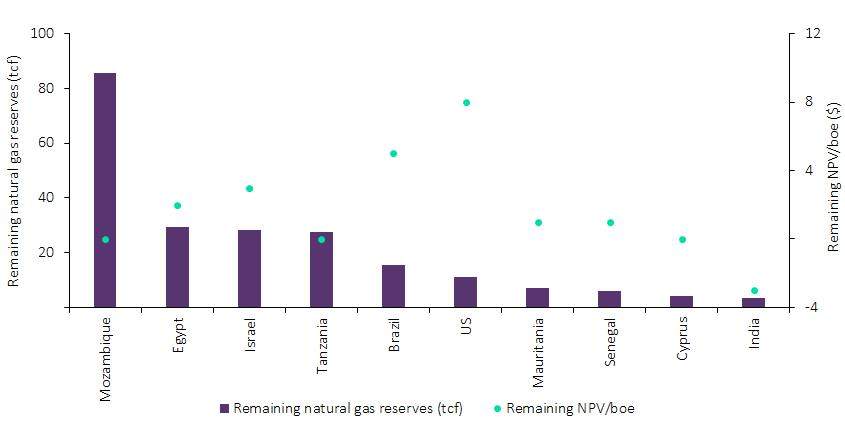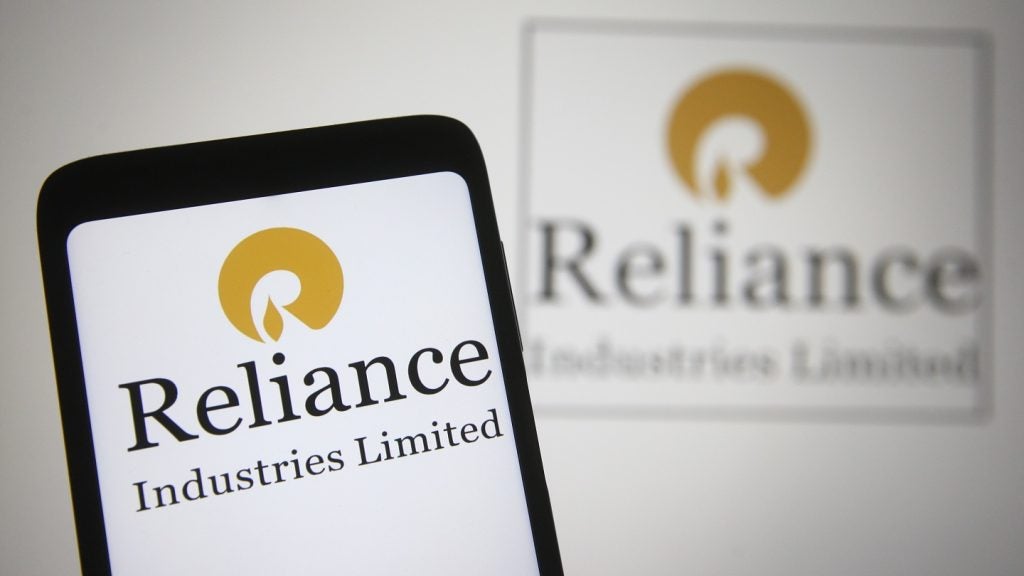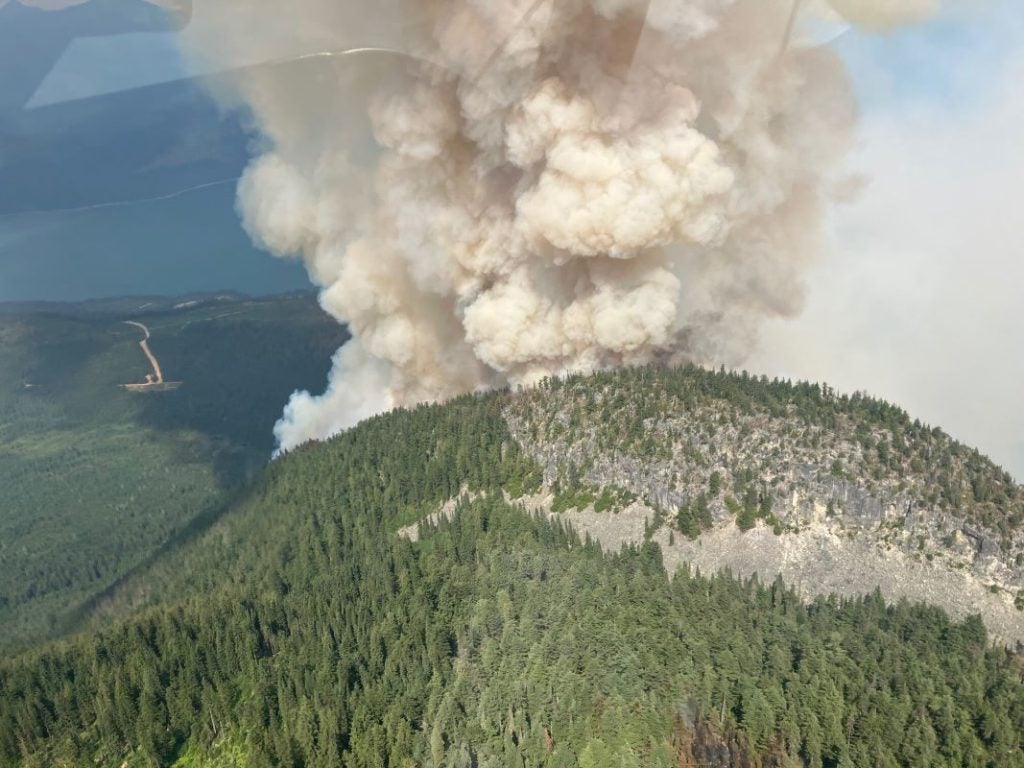Global ultra-deepwater gas production is expected to more than triple over the next eight years, from 4,102 billion cubic feet per day (bcfd) in 2017 to 15,985bcfd in 2025.
GlobalData’s analysis of remaining ultra-deepwater gas reserves shows that the top ten countries in the world hold over 96%, or 207 trillion cubic feet (tcf), of all remaining reserves from the currently producing, planned, and announced ultra-deepwater fields globally.
Mozambique holds the top spot among the top ten countries with largest remaining natural gas ultra-deepwater reserves, with 87,356 billion cubic feet (bcf) expected to be economically recovered in the country. Israel, Tanzania, and Egypt follow with 28,079bcf, 27,651bcf, and 18,852bcf respectively. These four countries, along with Mauritania, Senegal, Cyprus, and India, illustrate the two main approaches behind ultra-deepwater gas production growth.
Eschewing the stand-alone platform as a development concept, the first approach to producing ultra-deepwater gas fields applies the “subsea-to-beach” concept, enabled by ultra-long tie-backs of wells to onshore or near-shore gas processing facilities. Processed gas is either pipelined to final customers, as is the idea behind projects in Egypt and Israel, or liquefied for sales as liquefied natural gas (LNG), in Tanzania and Mozambique. Relocating processing closer to shore and relying on contracted drillships for drilling of wells and installing subsea infrastructure reduces the average capital cost per barrel of oil equivalent (boe) to US$5.19 for ultra-deepwater gas fields developed as “subsea-to-beach”.
Top ten countries with largest remaining natural gas ultra-deepwater reserves

| Source: Upstream Analytics © GlobalData |
The second development approach for producing ultra-deepwater gas reserves is the emerging floating liquefied natural gas (FLNG) technology, which enables processing, liquefaction, and export of gas from an ultra-deepwater location.
How well do you really know your competitors?
Access the most comprehensive Company Profiles on the market, powered by GlobalData. Save hours of research. Gain competitive edge.

Thank you!
Your download email will arrive shortly
Not ready to buy yet? Download a free sample
We are confident about the unique quality of our Company Profiles. However, we want you to make the most beneficial decision for your business, so we offer a free sample that you can download by submitting the below form
By GlobalDataA smaller contributor to ultra-deepwater gas reserves is the associated gas from ultra-deepwater oil fields, mainly in Brazil and the US Gulf of Mexico. Responsible for about 11% of reserves, these fields can represent a significant upside opportunity.
For more insight and data, visit the GlobalData Report Store – Offshore Technology is part of GlobalData Plc.









Related Company Profiles
Offshore Technology Corp